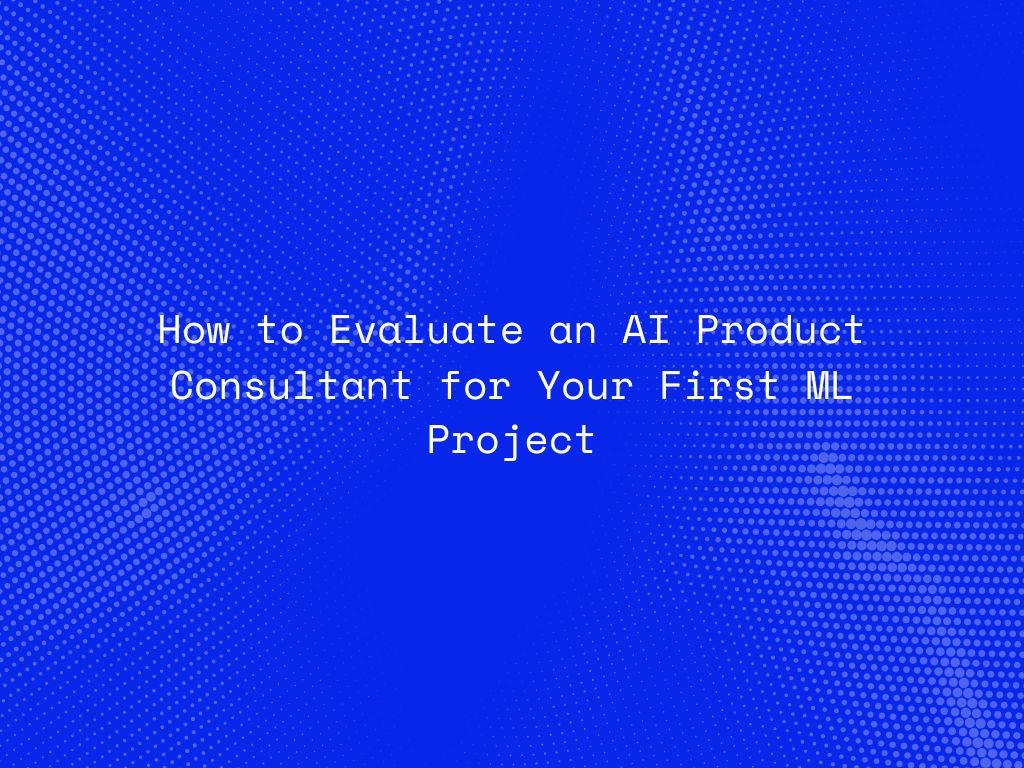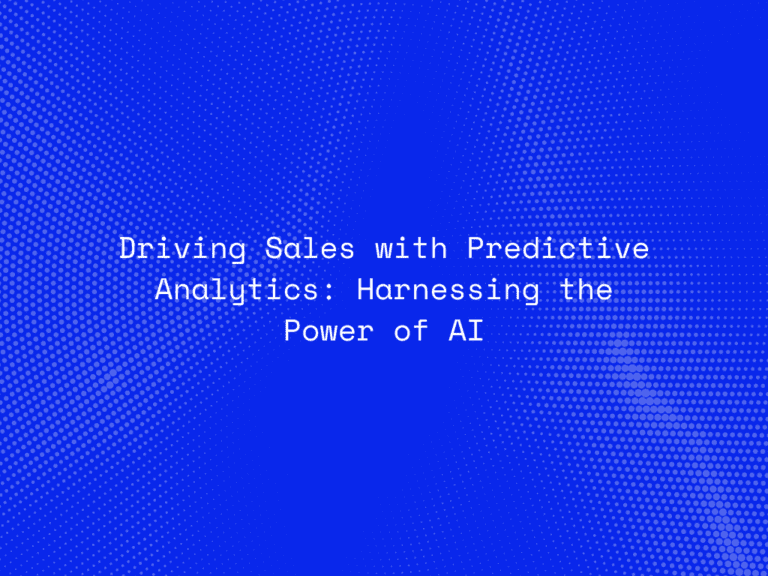Launching your first machine learning (ML) project is a major step toward transforming your business with artificial intelligence. However, success depends not just on your data or tools, but on having the right AI product consultant to guide your strategy, development, and deployment.
Choosing the wrong partner can lead to wasted time, inflated budgets, and models that never make it to production. The right consultant, on the other hand, will help you define measurable goals, design scalable solutions, and ensure your AI initiative aligns with business value.
So, how can you evaluate whether an AI product consultant is truly the right fit for your organization?
1. Assess Their Technical Expertise and Domain Knowledge
An effective AI consultant should have a strong foundation in machine learning, data engineering, and model deployment. Look for experience across technologies like TensorFlow, PyTorch, Scikit-learn, and cloud-based AI platforms such as AWS SageMaker, Azure ML, or Google Vertex AI.
Equally important is domain expertise. The consultant should understand your industry — whether it’s finance, healthcare, retail, or manufacturing — because AI models are only as good as their contextual relevance. Ask how they’ve applied ML to solve domain-specific challenges such as risk prediction, demand forecasting, or customer personalization.
A strong consultant bridges the gap between data science and business strategy, not just code and algorithms.
2. Evaluate Their Approach to Problem Definition
A great AI project begins with the right question. Before diving into data or models, the consultant should spend time understanding your business objectives, pain points, and success metrics.
Ask how they frame an ML problem statement. Do they begin by exploring use cases and defining measurable KPIs? Do they challenge assumptions to ensure AI is the right solution — or do they promise automation for everything?
The best consultants think strategically: they identify where ML creates the most impact, not just where it can be implemented.
3. Examine Their Data Strategy Capabilities
Data is the foundation of every ML initiative. Your consultant should demonstrate deep understanding of data collection, cleaning, feature engineering, and pipeline design.
Ask questions like:
-
How do you handle missing or inconsistent data?
-
What’s your process for data validation and labeling?
-
How do you ensure data privacy and regulatory compliance?
A consultant who emphasizes data quality and governance before model selection shows maturity and reliability. Remember — no model can outperform the quality of its data.
4. Check for Experience in Model Deployment and MLOps
Many machine learning projects fail not in development, but in deployment. A qualified consultant should have practical experience with MLOps — integrating ML models into production environments with continuous monitoring and retraining.
Ask about:
-
How they version models and datasets
-
How they manage scalability and performance
-
How they handle model drift and retraining
An ideal consultant will help you set up end-to-end pipelines that keep your AI solutions relevant and operational, not just theoretical.
5. Look for a Proven Track Record of Delivering Business Outcomes
AI success isn’t measured by model accuracy alone — it’s measured by business impact. Ask for case studies, success metrics, and client references that demonstrate tangible results, such as increased revenue, reduced costs, or process efficiency.
If the consultant can quantify the ROI of past projects or show how they transitioned proofs of concept (PoCs) into full-scale deployments, it’s a strong indicator of reliability and strategic alignment.
6. Assess Communication and Collaboration Skills
Building an ML solution requires continuous collaboration between technical and non-technical teams. A great AI consultant must be able to translate complex technical concepts into actionable business insights.
During initial meetings, observe how they communicate — do they use clear, structured explanations? Do they listen to your goals and adjust their recommendations accordingly?
Strong communication ensures smooth alignment across stakeholders, accelerating development and reducing misinterpretation.
7. Evaluate Their Ethical and Governance Framework
AI brings not only innovation but also responsibility. Your consultant should address AI ethics, bias mitigation, and regulatory compliance as part of their process.
Ask how they ensure fairness in model training, prevent data misuse, and maintain transparency in decision-making. Consultants who proactively discuss AI accountability and explainability demonstrate a forward-thinking approach that aligns with enterprise governance standards.
8. Gauge Their Long-Term Partnership Potential
AI is not a one-time project — it’s an evolving capability. You’ll need a consultant who sees beyond deployment and helps you build internal AI maturity.
Ask whether they provide training, knowledge transfer, and post-launch support. A long-term partner will focus on enabling your team, not keeping you dependent.
9. Understand Their Cost and Value Proposition
While budget is important, the cheapest consultant isn’t necessarily the best. Evaluate proposals based on value delivery, not just cost. A transparent consultant will provide a clear project roadmap, including milestones, deliverables, and pricing justification.
Look for someone who measures success by your business outcomes, not by the complexity of the solution.
Conclusion
Selecting the right AI product consultant can define the success or failure of your first machine learning project. The best consultants combine technical excellence, strategic thinking, and ethical awareness, ensuring your AI journey drives measurable impact and long-term scalability.
In today’s competitive landscape, organizations that choose wisely are the ones that will turn data into actionable intelligence — and AI into sustainable business growth.




